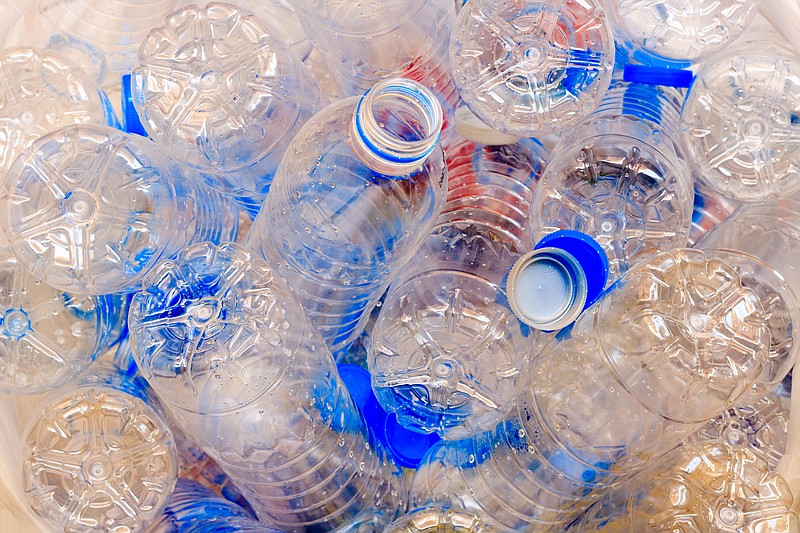A surprise amendment to a state bill would make it illegal for municipalities to regulate, prohibit or charge a fee for many single-use plastic items that have polluted Tennessee waterways at an alarming rate.
The bill would implement statewide standards for auxiliary devices: bags, cups, bottles, straws, to-go boxes, delivery packaging and more - whether they are reusable or single-use. Opponents believe the bill is overreaching and burdensome. However, legislators argue it will create statewide standards that are easier to follow.
"The decision [to regulate single-use items] would be the decision of the general assembly instead of local governments, which only stand to create a patchwork of very confusing local regulations that make it really hard to run a business and very expensive," state Rep. Susan Lynn, R-Mount Juliet, told a state subcommittee Wednesday. Lynn sponsored House Bill 1021. Its adjoining measure, Senate Bill 431, is sponsored by Mike Bell, R- Riceville.
It is the latest example of the state's General Assembly preference to govern at the state level rather than leaving decisions up to local governments. The state has taken a similar approach with labor, minimum-wage, smoking and weapons laws, Bell said. The approach helps create uniform regulations that are easier for businesses to follow, Bell added.
"Tennessee has been rated in the last couple years as the No. 1 state in the nation for small business," he said. "Our small and large businesses are doing great right now, and I think one of the reasons is that we have this uniform standards statewide. That's what this bill does."
However, the bill would immediately kill any municipality's ability to limit the use of single-use pollutants through local regulations, leaving such decisions up to the state, which does not currently have plans to implement such restrictions.
Reducing single-use plastic waste has been at the forefront of public discussion in Tennessee for several years.
The Tennessee River gained national attention last year after a study found it had more microplastics than several of the most polluted waterways in the world.
Locally, creeks and streams are overflowing with waste.
Private groups, volunteers, companies and other community members have spent resources trying to limit single-use plastic and have pushed for bills that would limit their use.
Memphis considered a 7-cent tax on plastic bags. Nashville considered similar legislation.
"The bigger thing here is that this is an overreach of state government," Sierra Club Tennessee Chapter Conservation Programs Coordinator Scott Banbury said. "They're saying local communities can't come up with their own solutions."
Conservation groups see the bill as an affront to those local efforts, and in many ways, it counters what municipalities are trying to do.
"I would say that's probably correct," Bell said. "A lot of municipalities would like to do this and have control, but the legislature has the authority to take control of these issues if we think it is in the best interest of the state."
The bill is supported by the beverage industry, retail industry and small business groups, Bell said. It follows the lead of an education-initiative by the American Legislative Exchange Council. The council has spearheaded a nationwide effort to reduce bills limiting and banning single-use plastics that the council has argued are simple, inexpensive and convenient.
The state's bill follows the council's suggested language nearly word for word. States like Indiana, Wisconsin, and Idaho have already enacted such laws.
"Is there waste from these things, yes, but is an outright ban the best way to deal with the byproduct? We believe a ban is not the best way," said Grant Kidwell, ALEC's director of energy, environment and agriculture task force. "We believe it's better to try to improve public waste collection."
The amendment was presented to a subcommittee Wednesday during the hill's Conservation Day. The discussion focused on plastic straw bans in places like California that Lynn sees as "abusing freedom."
The bill came as a shock to conservationists who were on the hill. It was not on the budget and was added as an amendment to an unrelated bill that extended the period a county legislative body must file a revised county district boundary map.
However, that bill was just a placeholder known as a "caption bill," Bell said, which is used when legislators don't have the language of the intended bill finished before deadline. The original bill is then entirely replaced by a subcommittee in an amendment.
The amended House Bill 1021 will go before the Consumer and Human Resources Committee on Monday, where it is expected to be met with resistance from conservation groups.
Contact staff writer Mark Pace at mpace@timesfreepress.com or 423-757-6659. Follow him on Twitter @themarkpace and on Facebook at ChattanoogaOutdoorsTFP.
